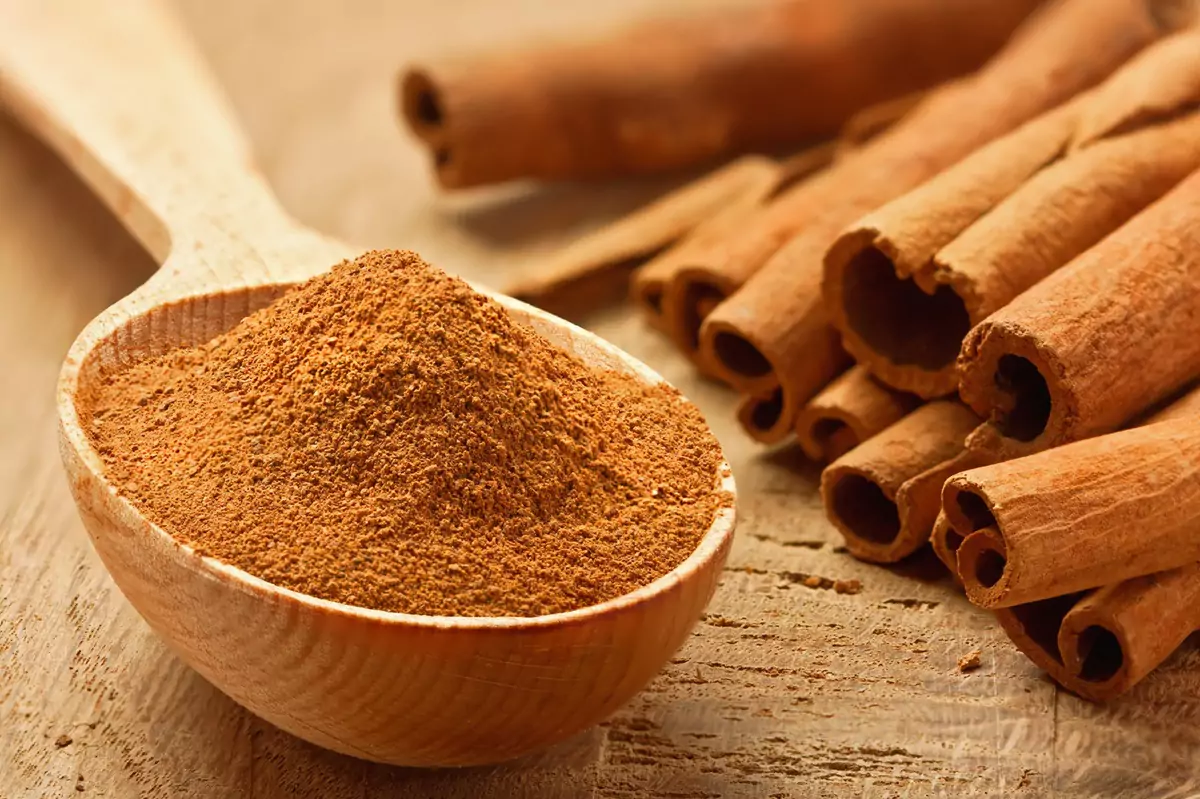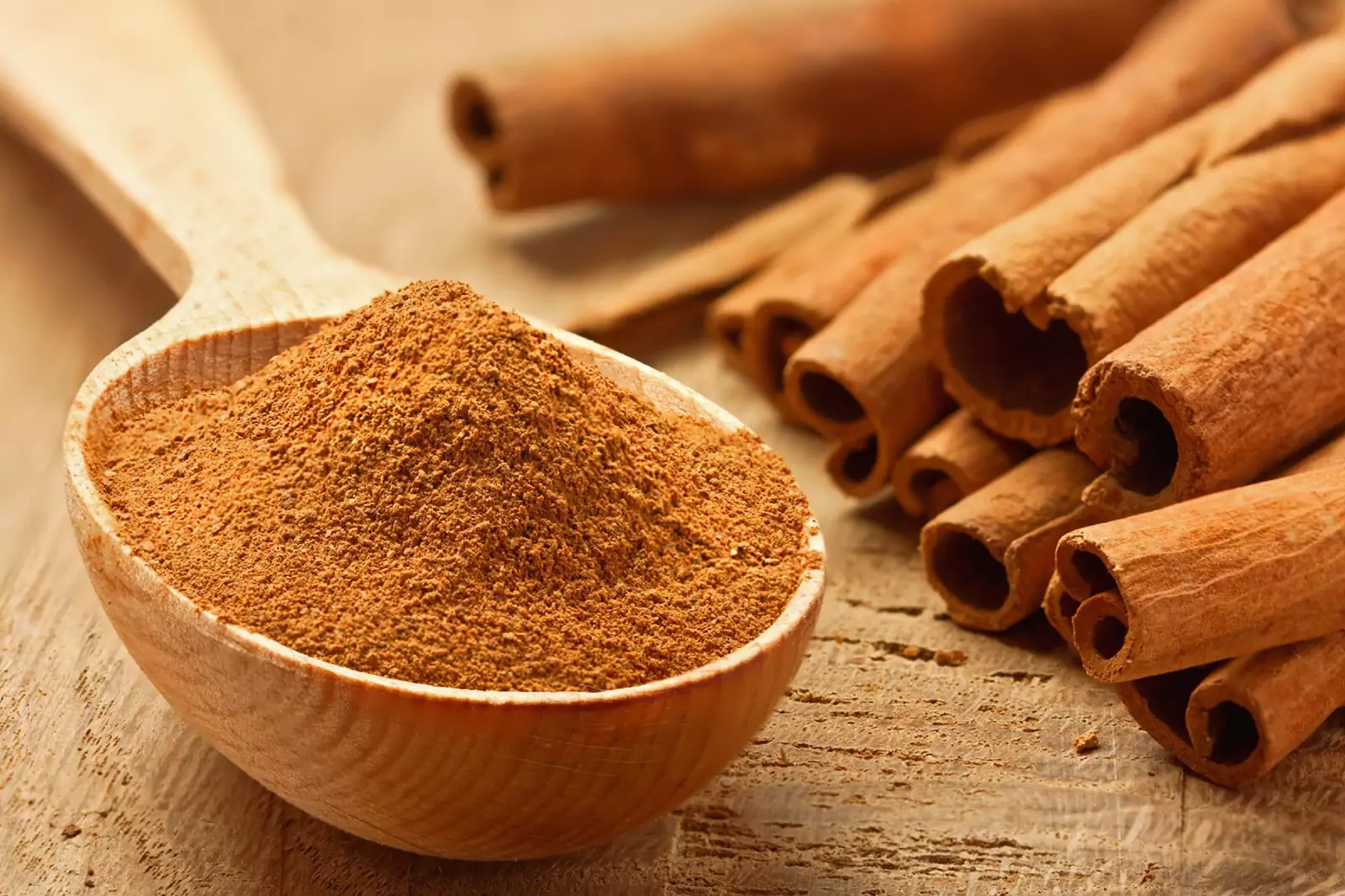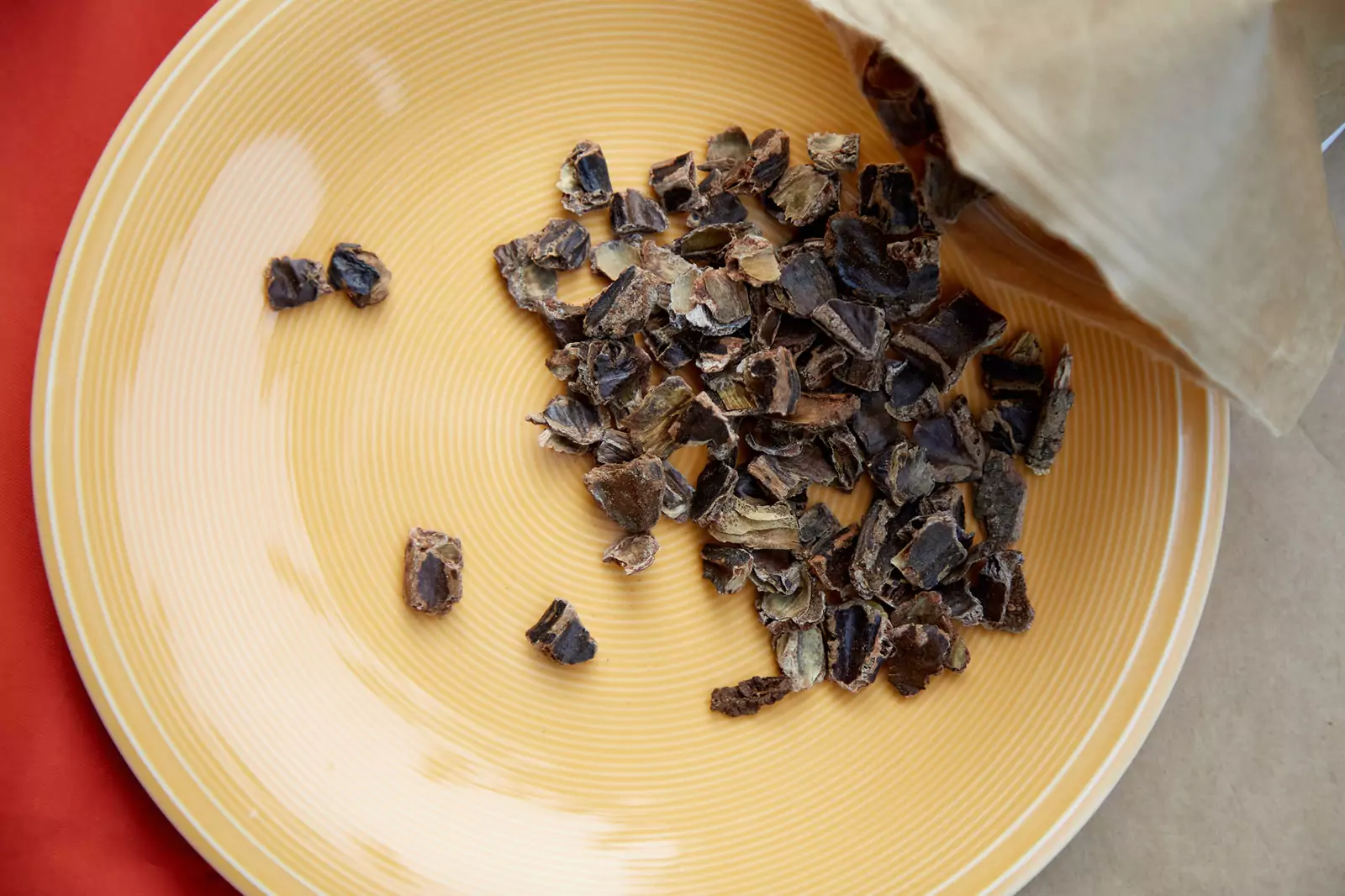





Is Cinnamon Good for Diabetes?


Table of Contents
- Cinnamon: A Spice with Health Benefits
- Health Benefits of Cinnamon
- Cinnamon and Cholesterol Levels
- Cinnamon's Impact on Total Cholesterol
- Is Cinnamon Good for Diabetes?
- How Cinnamon Affects Blood Glucose Levels
- Studies on Cinnamon and Type 2 Diabetes
- American Diabetes Association's View on Cinnamon
- Food and Drug Administration's Stance on Cinnamon Supplements
- Cassia Cinnamon vs. Ceylon Cinnamon: What's the Difference?
- Understanding Cassia Cinnamon
- Benefits of 100% Pure Ceylon Cinnamon
- Choosing the Right Cinnamon for Diabetes Treatment
- The 40-Day Cinnamon Challenge for People with Diabetes
- The Concept of the 40-Day Challenge
- Benefits of Cinnamon in Diabetes Care Over 40 Days
- Precautions and Side Effects
- Practical Tips for Using Cinnamon in Diabetes Management
- Cooking with Cinnamon
- Incorporating Cinnamon in Different Ways
- Conclusion
- About The Author
Have you ever looked at your spice rack and thought that a solution to a serious health issue might be hiding there? Believe it or not, cinnamon that aromatic spice we often associate with sweet treats and holiday feasts might be more than just a flavor enhancer.
Recent studies suggest that cinnamon good for diabetes, a condition that affects millions worldwide. This surprising connection between a common kitchen spice and a complex health issue has sparked interest and research. In this article, we'll explore how cinnamon can play a vital role in diabetes care, from scientific evidence to practical tips. So grab a cup of tea (maybe spiced with a little cinnamon?) and let's dive in!
Cinnamon: A Spice with Health Benefits
Cinnamon is a spice that has been used for thousands of years, not only for its aromatic flavor but also for its medicinal properties. Derived from the bark of the Cinnamomum tree there are two main types of cinnamon:
Cassia cinnamon which is more commonly found in supermarkets and Ceylon cinnamon, often referred to as "true" cinnamon. While many people enjoy cinnamon in their favorite dishes, few realize the potential health benefits it offers, especially for people with diabetes.
Health Benefits of Cinnamon
Cinnamon has been studied extensively for its potential health benefits, particularly in diabetes care. Research has shown that cinnamon can help lower blood glucose levels, making it a valuable addition to the diet of people with type 2 diabetes. The spice's ability to reduce blood sugar levels has been recognized by various health organizations, including the American Diabetes Association.
One of the ways cinnamon aids in diabetes treatment is by improving insulin sensitivity, allowing the body to use insulin more effectively. This helps regulate blood sugar levels, a critical aspect of diabetes care. Additionally, cinnamon supplements have become a popular choice for those looking to harness the benefits of cinnamon without consuming it in food.
However, it's essential to note that while cinnamon shows promise in diabetes care, it is not a substitute for prescribed diabetes treatment. Consulting with healthcare professionals and following the Food and Drug Administration's guidelines on cinnamon supplements is vital to ensure safety and effectiveness.
Cinnamon and Cholesterol Levels
Beyond its impact on blood glucose levels, cinnamon has also been studied for its effects on cholesterol levels. High cholesterol is a common concern for people with diabetes as it can lead to other health complications. Cinnamon's ability to reduce both total cholesterol and LDL ("bad") cholesterol levels has been observed in several studies.
The spice's influence on cholesterol levels is another reason why it's considered beneficial for diabetes care. By helping to regulate cholesterol, cinnamon supports overall heart health, an essential consideration for those with type 2 diabetes.
However as with blood sugar control, it's crucial to recognize that cinnamon is an adjunct to traditional diabetes treatment and not a replacement. Monitoring cholesterol levels and following prescribed treatments remain key.
Cinnamon's Impact on Total Cholesterol
Cinnamon's effect on total cholesterol is a specific area of interest in medical research. Total cholesterol is a measure of all the cholesterol in your blood, including LDL and HDL ("good") cholesterol. Maintaining healthy total cholesterol levels is vital for heart health, especially for people with diabetes.
Studies have shown that regular consumption of cinnamon, whether through diet or cinnamon supplements can lead to a reduction in total cholesterol levels. This reduction supports cardiovascular health, a significant concern for those with type 2 diabetes. The 40-day challenge of incorporating cinnamon into the diet has even been proposed as a way to observe these effects over a more extended period.
However, it's essential to approach this with caution as excessive consumption of cinnamon, particularly Cassia cinnamon can have side effects. Consulting with healthcare professionals and understanding the appropriate use of cinnamon in the context of individual health needs is crucial.
Is Cinnamon Good for Diabetes?
The relationship between cinnamon and diabetes has become a focal point in the scientific community. This section will delve into the scientific perspective on how cinnamon affects blood glucose levels the studies conducted on cinnamon and type 2 diabetes and the views of both the American Diabetes Association and the Food and Drug Administration on cinnamon supplements.
How Cinnamon Affects Blood Glucose Levels
Cinnamon's impact on blood glucose levels has been a subject of interest for researchers. Blood glucose levels are a critical aspect of diabetes care and maintaining them within a healthy range is essential for people with diabetes. Cinnamon, particularly cassia cinnamon, has been found to contain compounds that can mimic insulin's effects.
These compounds help the body's cells absorb glucose more efficiently thereby reducing blood sugar levels. Several studies have shown that cinnamon can improve insulin sensitivity, allowing the body to use insulin more effectively.
This is particularly beneficial for individuals with type 2 diabetes, where insulin resistance is a common issue. The benefits of cinnamon in regulating blood glucose levels have led to increased interest in cinnamon supplements as a complementary approach to diabetes treatment.
Studies on Cinnamon and Type 2 Diabetes
The connection between cinnamon and type 2 diabetes has been explored in various scientific studies. Some research has shown that consuming cinnamon for 40 days can lead to significant reductions in blood sugar levels, total cholesterol and LDL cholesterol levels.
These studies often compare cassia cinnamon to other types of cinnamon and analyze the effects on people with diabetes. However, it's essential to note that not all studies have reached the same positive conclusions. Some have found minimal or no significant effects, highlighting the need for further research and careful consideration of potential side effects.
The benefits of cinnamon in diabetes care are promising but should be approached with caution. Consulting with healthcare professionals and considering individual needs and responses is crucial.
American Diabetes Association's View on Cinnamon
The American Diabetes Association (ADA) recognizes the potential health benefits of cinnamon, particularly in the context of type 2 diabetes. While the ADA does not officially endorse cinnamon as a standalone treatment for diabetes they acknowledge the research showing its positive effects on blood glucose levels.
The ADA emphasizes the importance of a comprehensive approach to diabetes treatment, including diet, exercise, medication and potentially incorporating natural supplements like cinnamon. They encourage individuals to discuss the use of cinnamon with their healthcare providers to ensure it fits within their overall diabetes care plan.
Food and Drug Administration's Stance on Cinnamon Supplements
The Food and Drug Administration (FDA) plays a vital role in regulating supplements, including cinnamon supplements. While the FDA does not specifically endorse cinnamon for diabetes treatment they regulate the marketing and labeling of cinnamon supplements to ensure accuracy and safety. The FDA's primary concern is the quality and safety of supplements.
They monitor for potential side effects and interactions with other medications. People with diabetes considering cinnamon supplements should be aware of the FDA's role in ensuring that these products meet specific standards. The scientific perspective on cinnamon and diabetes is both intriguing and complex. Research has shown promising results in how cinnamon affects blood glucose levels, particularly in type 2 diabetes.
Organizations like the American Diabetes Association and the Food and Drug Administration have provided guidance and oversight, respectively.
However the use of cinnamon, whether in the diet or as supplements, should be considered part of a broader diabetes care strategy and individuals should consult with healthcare professionals to determine the best approach for their unique needs. The journey of understanding cinnamon's role in diabetes treatment continues, reflecting the ongoing pursuit of natural and effective ways to enhance health and well-being.
Cassia Cinnamon vs. Ceylon Cinnamon: What's the Difference?
When it comes to diabetes care, not all cinnamon is created equal. The two main types of cinnamon, Cassia and Ceylon, have distinct characteristics and effects on health, particularly for people with diabetes. Understanding the differences between these two types of cinnamon is essential for anyone considering this spice as part of their diabetes treatment.
Understanding Cassia Cinnamon
Cassia cinnamon, commonly found in grocery stores, is often used in various cuisines. However, it's essential to recognize that Cassia cinnamon contains a compound called coumarin which can have side effects if consumed in large quantities.
The Food and Drug Administration (FDA) has provided guidelines on the safe consumption of Cassia cinnamon, especially for people with diabetes. While Cassia cinnamon has been associated with lowering blood glucose levels and improving cholesterol levels, its high coumarin content may pose risks.
Therefore, understanding the properties of Cassia cinnamon is crucial for those considering it as part of their diabetes treatment.
Benefits of 100% Pure Ceylon Cinnamon
Ceylon cinnamon, also known as "true cinnamon," is considered the healthier option for people with diabetes. Unlike Cassia cinnamon, Ceylon cinnamon has a lower coumarin content, reducing the risk of side effects. The benefits of cinnamon, particularly Ceylon, extend beyond just flavoring your favorite dishes.
Research has shown that Ceylon cinnamon can positively impact blood sugar levels, total cholesterol and even aid in type 2 diabetes care. Its health benefits make it a preferred choice for those seeking natural remedies in diabetes treatment.
American Diabetes Association has also acknowledged the potential role of Ceylon cinnamon in diabetes care. Its ability to regulate blood glucose levels without the risks associated with Cassia makes it a valuable addition to the diet of people with diabetes.
Choosing the Right Cinnamon for Diabetes Treatment
Choosing between Cassia and Ceylon cinnamon for diabetes treatment is more than just a matter of taste. It's about understanding the health benefits, potential side effects and how each type aligns with individual health goals.
For those aiming to control blood sugar levels and cholesterol levels, Ceylon cinnamon is often recommended. Its lower coumarin content and proven health benefits make it a safer option. However, consulting with healthcare professionals and understanding the guidelines provided by the Food and Drug Administration is essential before incorporating cinnamon supplements or the spice itself into a diabetes care routine.
The 40-Day Cinnamon Challenge for People with Diabetes
The 40-day cinnamon challenge has recently gained attention as a natural approach to diabetes care, particularly for those with type 2 diabetes. This section will explore the concept of the challenge the benefits of cinnamon over 40 days and the necessary precautions and potential side effects.
The Concept of the 40-Day Challenge
The 40-day cinnamon challenge is a structured plan where individuals with diabetes, especially type 2 diabetes, incorporate cinnamon into their daily diet for 40 consecutive days. The idea stems from various studies that have shown the potential health benefits of cinnamon, including its effect on blood sugar levels and total cholesterol.
The challenge typically involves adding a specific amount of cinnamon, often in the form of cinnamon supplements, to one's daily meals. It's essential to consult with healthcare professionals before starting the challenge to ensure that it aligns with individual diabetes treatment plans.
Benefits of Cinnamon in Diabetes Care Over 40 Days
Cinnamon has been recognized for its potential health benefits, particularly in diabetes care. Over a 40-day period the consistent use of cinnamon can lead to several positive outcomes:
- Blood Sugar Levels: Cinnamon has been found to help regulate blood glucose levels. By incorporating it into meals for 40 days, people with diabetes may notice a more stable blood sugar pattern.
- Cholesterol Levels: Besides blood sugar control, cinnamon also affects cholesterol levels. It can help reduce LDL (bad cholesterol) and increase HDL (good cholesterol), contributing to better overall cholesterol management.
- Type 2 Diabetes Management: For those with type 2 diabetes, cinnamon can be a valuable addition to their diabetes treatment plan. Its natural compounds have been shown to improve insulin sensitivity, making it easier to manage blood glucose levels.
- Overall Health Benefits: The benefits of cinnamon extend beyond diabetes care. Its anti-inflammatory and antioxidant properties contribute to overall well-being, supporting heart health and the immune system.
It's worth noting that while cassia cinnamon is commonly available, Ceylon cinnamon is often recommended for its lower coumarin content which is safer for regular consumption.
Precautions and Side Effects
While the 40-day cinnamon challenge offers promising benefits, it's not without precautions and potential side effects:
- Understanding Side Effects: Some people may experience side effects such as digestive issues or allergic reactions. Being aware of these potential side effects and monitoring for any unusual symptoms is essential.
- Avoiding Overconsumption: While the benefits of cinnamon are promising, overconsumption can lead to unwanted effects. Adhering to the recommended dosage and duration of the 40-day challenge is vital.
- Considering Individual Needs: The challenge may not be suitable for all people with diabetes. Individual health conditions, medications and dietary needs must be considered.
In essence the 40-day cinnamon challenge presents an intriguing and natural approach to diabetes care. By understanding the concept, recognizing the benefits and taking necessary precautions, individuals with diabetes can explore this option as a complementary part of their overall diabetes treatment strategy. It represents a convergence of tradition and science, offering a holistic approach to managing a complex condition.
Practical Tips for Using Cinnamon in Diabetes Management
Managing diabetes, particularly type 2 diabetes, is a daily challenge that requires careful attention to diet, exercise and medication. Among the various natural remedies that have been explored for diabetes care, cinnamon stands out for its potential health benefits.
In this section, we'll delve into practical ways to incorporate cinnamon into your daily routine, focusing on cooking with cinnamon and incorporating it in different ways.
Cooking with Cinnamon
Cinnamon is not just a spice that adds flavor to your dishes; it's a potential ally in diabetes treatment. Cooking with cinnamon can be a delightful experience that also contributes to your health.
- Breakfast Boost: Start your day with a sprinkle of cinnamon on your oatmeal or yogurt. It can help regulate blood sugar levels and provide a tasty twist to your morning meal.
- Savory Dishes: Don't limit cinnamon to sweet dishes. Add it to stews, curries and marinades to enhance flavor while reaping the benefits of cinnamon for blood glucose levels.
- Beverages: A dash of cinnamon in your coffee or tea not only adds a warm, spicy note but also contributes to maintaining cholesterol levels.
- Avoiding Cassia Cinnamon: While cooking, it's essential to choose the right type of cinnamon. Cassia cinnamon is commonly available but may have side effects if consumed in large quantities. Opt for Ceylon cinnamon which is considered safer for regular use by people with diabetes.
- Monitoring Effects: Keep track of your blood sugar levels as you incorporate cinnamon into your diet. It helps in understanding how your body responds and ensures that you are moving in the right direction in diabetes care.
Incorporating Cinnamon in Different Ways
Cinnamon's versatility goes beyond cooking. Here are some additional ways to enjoy the health benefits of cinnamon, especially for diabetes treatment:
- Cinnamon Supplements: If you're not a fan of the spice's flavor, cinnamon supplements are an alternative. They provide a controlled way to enjoy the benefits of cinnamon for blood glucose and cholesterol levels. Consult with a healthcare provider to choose the right supplement as quality and dosage can vary.
- Cinnamon Tea: A soothing cup of cinnamon tea can be a relaxing way to incorporate this spice into your daily routine. It's a simple yet effective method to manage blood sugar levels.
- Cinnamon Infused Water: Infusing water with a cinnamon stick and sipping it throughout the day is a gentle way to introduce the spice into your diet. It's a subtle approach that still offers the health benefits of cinnamon, including managing total cholesterol.
Cinnamon is more than a delightful spice; it's a potential partner in diabetes care. Whether you're cooking with cinnamon or finding other creative ways to incorporate it the key is to do so thoughtfully and in collaboration with healthcare professionals.
By understanding the different types of cinnamon and being mindful of quantities, you can enjoy the culinary and health benefits of this remarkable spice. It's a natural and enjoyable way to support your journey in managing diabetes, enhancing not only the flavor of your meals but also your overall well-being.
Conclusion
Who would have thought that the answer to a healthier life with diabetes might be sitting in your kitchen cabinet? The idea that cinnamon good for diabetes is not just a myth; it's backed by scientific research and real-life success stories.
From understanding the different types of cinnamon to exploring the 40-day cinnamon challenge and even discovering supplements like SugarMD Super Berberine, we've journeyed through the world of natural remedies for diabetes care. So why not sprinkle a little cinnamon on your next meal? It could be a simple step towards a healthier you. After all sometimes the most extraordinary solutions are found in the most ordinary places.
About The Author
Meet Dr. Ahmet Ergin a highly skilled and dedicated endocrinologist with a passion for diabetes care. Dr. Ergin earned his medical degree with honors from Marmara University in Istanbul. He completed internal medicine residency and endocrinology fellowship at Cleveland Clinic.
Dr. Ergin is board-certified in Internal Medicine, Endocrinology, Diabetes and Metabolism due to his vast medical expertise. He's a certified diabetes educator, author of "The Ultimate Diabetes Book," and founder of "the SugarMD YouTube channel."
Dr. Ergin offers exceptional diabetes care to his patients in Port Saint Lucie, FL, helping them manage effectively. Disclaimer: These statements have not been evaluated by the Food and Drug Administration. Information on this website isn’t intended to treat, cure or prevent any disease. Discuss with your doctor and do not self-treat.
Written By Dr. Ahmet Ergin
470 total articles
Meet Dr. Ahmet Ergin, a highly skilled and dedicated endocrinologist with a passion for diabetes care. Dr. Ergin earned his medical degree with honors from Marmara University in Istanbul. He completed internal medicine residency and endocrinology fellowship at Cleveland Clinic. Dr. Ergin is board-certified in Internal Medicine, Endocrinology, Diabetes, and Metabolism due to his vast medical expertise. He's a certified diabetes educator, author of “The Ultimate Diabetes Book,” and founder of “the SugarMD YouTube channel.” Dr. Ergin offers exceptional diabetes care to his patients in Port Saint Lucie, FL, helping them manage effectively. For a closer look into his insights and experiences, connect with Dr. Ahmet Ergin on LinkedIn, Instagram, and YouTube.”
Disclaimer: These statements have not been evaluated by the Food and Drug Administration. Information on this website isn't intended to treat, cure or prevent any disease. Discuss with your doctor and do not self-treat.
Products













